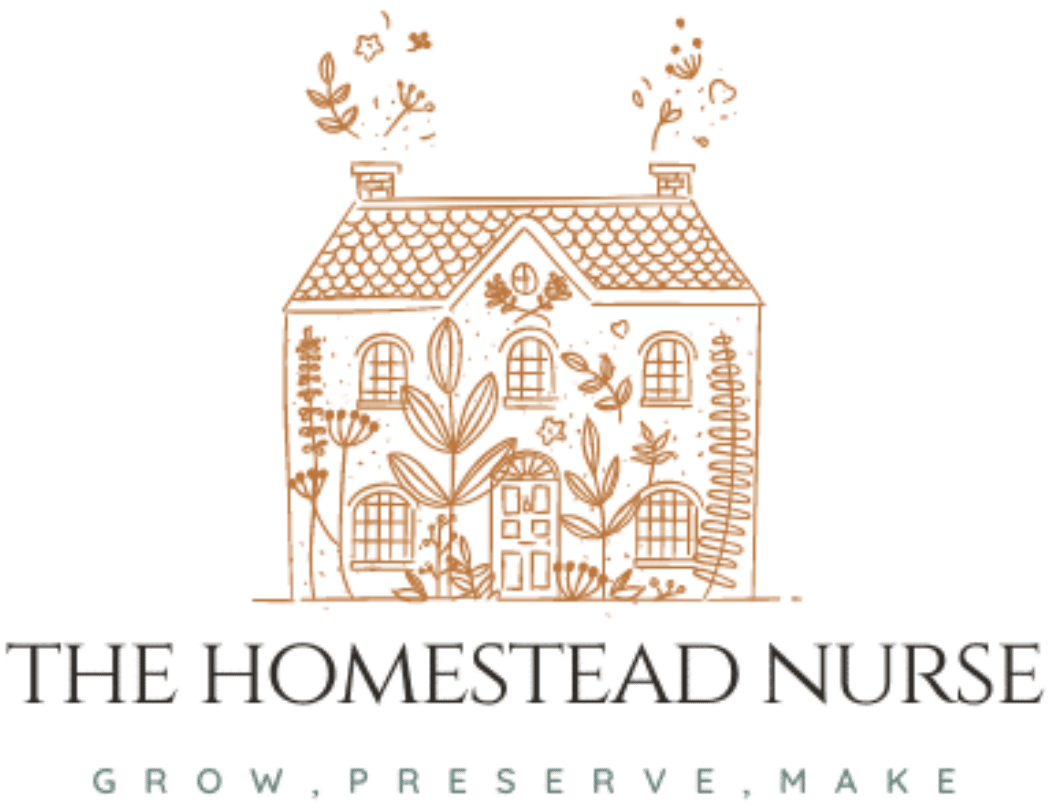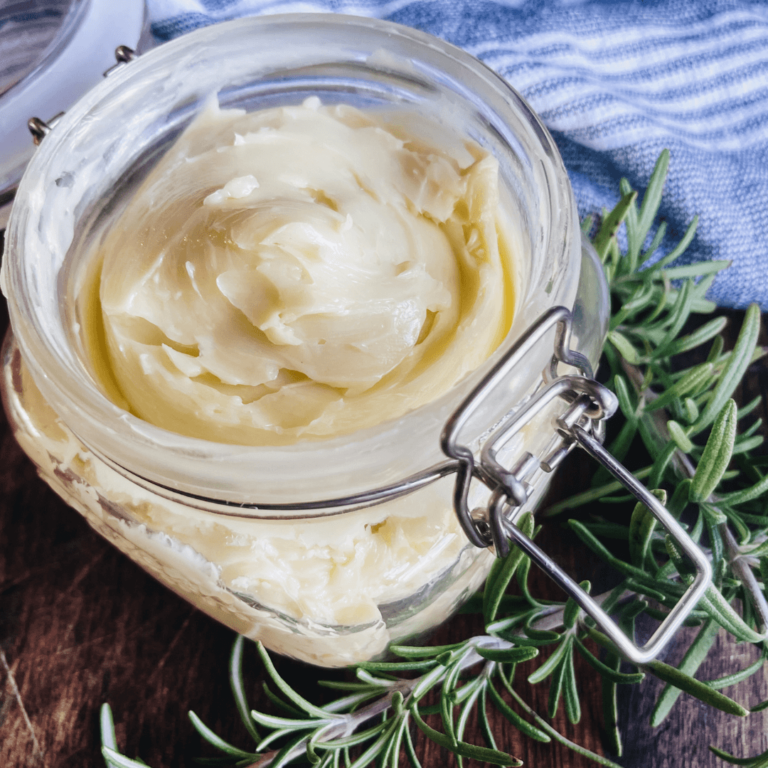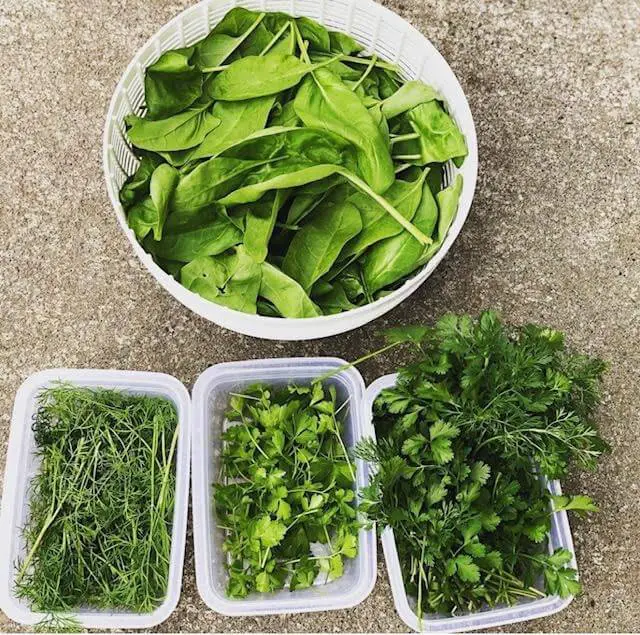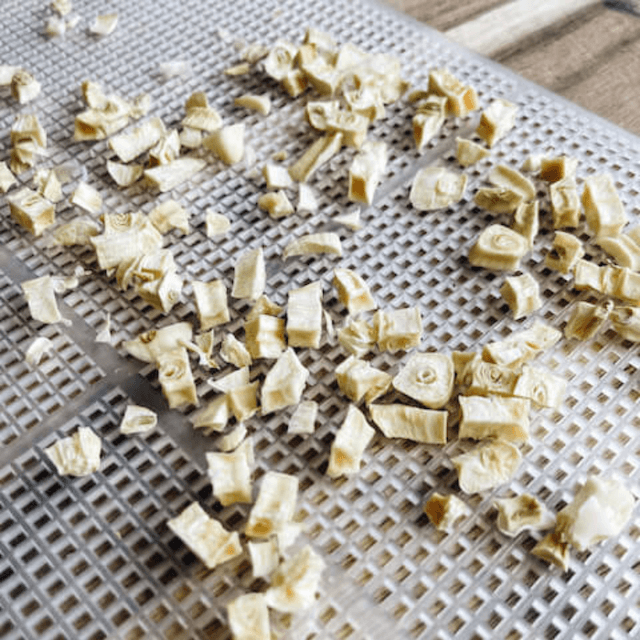15 Important Things Learned: Buying Land in Florida to Farm on
We will let you know from experience the top 15 things we found out when buying land in Florida.
There are many things you need to consider when getting a little piece of land for yourself.
No matter all the hoops you may have to go through, it is possible to buy raw land in Florida.
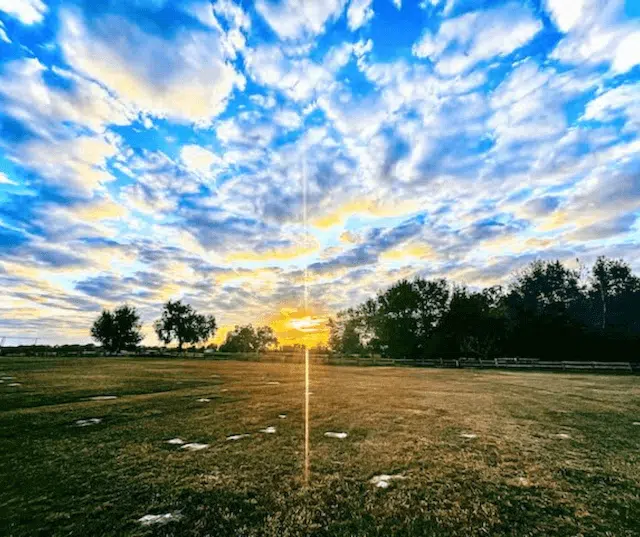
Your home is one of your biggest investments!
Knowing what to ask can help you pick the best land will help you get the right land for you in your price range.
Table of Contents: Buying Land in Florida
If you are buying land in the state of Florida, you are buying a lifestyle and the chance to be land owners.
Having more space is in demand nowadays, and land is going to get harder to get sooner than later. In my opinion, it is worth buying land, especially agricultural property.
The congestion of locations is becoming too much for people who want the ability to do things on their terms.
Not feeling restricted or controlled is a goal for a lot of people.
I can relate to wanting to have a plot of land, more freedom, and slowly transition out of the rat race.
With plenty of research and personal experience below are the 15 things I learned from buying land in Florida.
15 things I learned Buying Land in Florida

1. Getting the right lender that will support your goals is key.
If you have decided to buy land for an investment property or future home, the first thing you should do is write down your goals.
After you have some direction, find a lender that will support any goals or dreams you have.
For example:
If you want to have livestock, a homestead, a farm for a business, etc., only a handful of lenders will support you.
I used FamersCredit since they focused on farming and finding properties that can help people create a future homestead.
This is the most important thing because If you don’t choose the right lender, it will hurt your bank account in the end.
2. The Property Zone of your land matters…a lot!
Your lender will be determined if they approve the type of zoning they will finance.
Ask your lender what zonings they accept and which ones they don’t.
By getting these property details you will narrow down your search, save money, and provide you an easy sale process.
Some Zoning examples:
A- Agriculture: Land that can be farmed
Class B- Commercial District: Land that is for business use.
C- Commercial: Can be used for business as well (like building a store)
RR-Rural Residential: Can’t use the land for agricultural purposes

3. Always check for wetland or if the land is in a flood zone first.
While you are on sites like Zillow, Trulia, or searching through properties from your realtor, the first thing you should do is go to the flood site HERE .
When you go to the site you put the address in and it will show you if the property is in a flood zone, which might mean you may need to get extra insurance.
Some properties might be in a flood zone and have a document called an “elevation certificate,” which may decrease flood insurance.
In my case, I didn’t want to deal with it at all and waste my time looking at land that was in a flood zone. It is totally up to you!
4. Save money for various inspections & other fees during escrow
I’m sure you know that if you’re buying a house or land, you might just need extra cash set aside.
Aside from a down payment that some people might plan to have, you can’t forget about all the lovely inspections that come with buying land
Some inspections include a Survey that shows you the size and shape of land you are buying. Getting a good inspection is another expense you might encounter.
From good inspections to having a land survey, these extra costs just come with the territory of buying land not just in Florida but everywhere.
You can easily spend up to 1000 dollars or more on inspections, especially if you go from house to house having no luck with a property that falls through.
So just be ready!

5. If you’re planning to generate income from land, it might be hard to finance.
If you want the land to generate some income for yourself then you need a lender that supports that goal.
It is frowned upon by lenders to make money on a property that will be your primary residence.
There are so many different times of loans, which makes it that much more important to pick a loan that will work best for your situation.
Just know, spilling all your dreams to your lender might bite you in the foot.
6. Be prepared for land expenses after you close
No one talks about the expenses after you finally buy land. Now that you have land you will have to consider the what-ifs.
You will be considered lucky if you have a family member or know people who can give you a deal with land expenses.
Some things to be mindful about…
You properly won’t have city water so there are well expenses
Electric might or might not be already hooked up
You might have septic tank expenses.
Need irrigation? You might need another well, or need to dig deeper in the well, it will cost you.

7. Look at what is surrounding the land and your potential neighbors.
Getting excited about a property can blindside you to what you need to focus on, like knowing what is surrounding the land.
You want to ensure you’re not moving onto a toxic waste dump and see if it’s worth living in the area.
Make sure you are buying a valuable piece of property and ask yourself if the land is usable and if will it help you reach your goals.
Ask your realtor if you have any questions, my realtor let me know one of the properties I was looking at had an old dump right behind it. A good realtor should do research or know the area beforehand.
8. Research land history: back taxes, property ownership, land specs, etc
A realtor should help you with questions, as they can get a lot of information about taxes or the backstory of a property.
One rule of thumb is to find out the property taxes and possible exemptions beforehand!
You can go to the website of the county of the land and search yourself for land history since this information should be available to the public.
The whole point of this is to make sure you are not walking into a money pit or inheriting someone’s else problem.
I emailed the county my land is in and asked for the exact specs of the land to make the amount of land was accurate and they gave me that information without a problem.
There is nothing wrong with getting a second opinion or fact-checking.
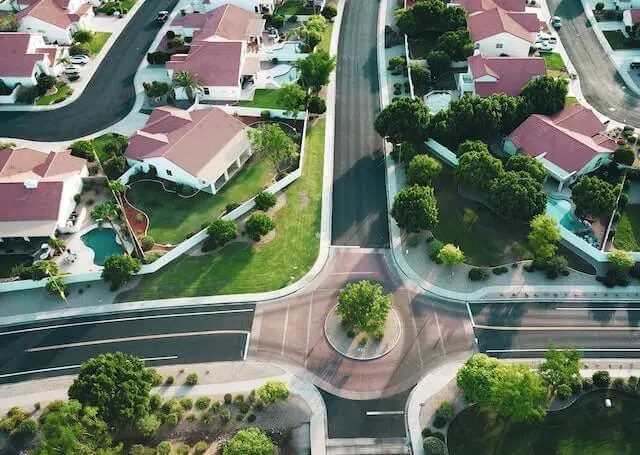
9. Know if you have a POA or an HOA
I’m sure no one is jumping up and down wanting an HOA or POA. When I think of an HOA or a POA, I think of a community like a photo you see above, very cookie-cutter.
If you are buying land in Florida or anywhere else and want some freedom, you would not like having a POA or HOA.
What is an HOA?
It’s a due you pay for upkeep required for a community of homes that are alike and must follow certain rules.
What is a POA?
This is a fee you pay to improve the entire area of a specific city, neighborhood, or town.
Ask and make sure you don’t one and it will save you money and eliminate rules you must follow in the long run.
10. Find out the Utilities Situation of the land
This tip goes together with tip number 6 as fixing utilities can be as an expense as getting them new.
With land, you must be mindful that you’re not in the city anymore so there is a cost to have utilities created from scratch.
Check on the power situation of the land, the water, and the sewer of all property you are searching for. Unless you don’t mind getting those things or you have saved up anyways to have the money for these utilities.
Just know for example a new septic system can run about 30-40 thousand dollars!

11. Be mindful of the land needs to be cleared
Trees can be a great thing on a piece of land, but they can also be costly. Keep in mind It takes a lot of money to remove trees.
For example, if you want a garden you might need to remove trees to get more sun into an area. Or if you want to have animals tress might be needed to provide shade for your livestock.
Overall, having trees can either break the bank and it is based on personal preference.

12. Land Slopes, Shapes, Size, and Entrances matter
The shape of the land might be a deal-breaker if it’s not functional for you.
Looking at how you enter and leave the property is an important thing to notice since any roadblocks can be a potential problem.
Is it by a busy highway, or will it be a pain to go in and out of, all these questions and many others will come up while you checking out a property.
Slopes and weird layouts of land need to be questioned especially in Florida where it rains a lot.
Having multiple pools of water around might now be wanted by someone who is planning to grow food.
It’s all personal preference, so remember to look at how the land is shaped and how the entrenches are placed.
13. Research all the different types of loans beforehand
America sure makes it hard to buy land, at least in my experience I had to jump hoops to try to find a type of loan that will let me farm.
Government back loans usually are all about residential cookie-cutter homes.
You can’t have a working farm or business on your land if you want to get your loan from these authorities.
I found out that residential USDA loans don’t finance land that has the potential to make income and that the VA loans frown on that as well.
USDA has loans that are under them that farmers can use, but you will need a lot of proof of past earnings as a farmer.
The video below is a great reference on a USDA farm loan.
These agencies say that if the land isn’t only zoned residential it affects the housing market availability for resale.
Dig deep into all the loans that will let you do what you want to do.
I wanted to farm for a business so I need support to do that.
Also, know if you don’t have a good amount of cash saved you will have a harder time.
Depending on your situation, income can make or break your transaction.
It should be common sense, but it depends on the situation you’re in.
Military folks:
If you are in the military and getting out within a year, your income may not count towards your preapproval.
Be sure to have another person on loan with you or if you are getting money from the VA, have all the documents you need before the loan process is over.
VA loans will not finance land that will be used for farming/business so know that ahead of time.
My lenders told me they won’t finance our home if we were using it for a farming business.
Here are some quotes from some lender sites:
“..while there is no specific requirement about earning income from farming, if you do have farming income then many lenders will deny your loan” –homepromise.com
“VA-guaranteed loans can only be used for residential purposes, and not to purchase a business. This means that some farm properties may not be eligible for purchase using a VA-backed loan.” –Benefits.va.gov
14. Going manufacture home route, know the rules!
From double wides to single wide’s, these types of homes are popular on large pieces of land so you might end up finding yourself looking at them.
Single-wide manufactured homes might be hard to finance, and if you find one you might be paying a crazy down payment or have a large interest rate.
I was looking at a single wide that had multiple additions to it that had no paperwork to back it up.
I tried hard to find a company to finance it. No luck so I had to move on.
Some things I learned about manufactured homes are the inspections are detailed, the rules are strict and looks can be deceiving.
Ask your lender their rules for buying manufactured homes, every company does business differently.
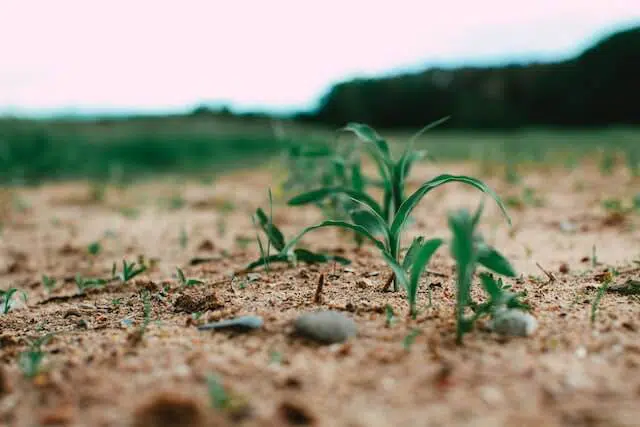
15. Educate yourself on what are mineral rights
This might be a hard thing to do since an attorney has to review multiple records that belong to the land to tell you if you have mineral rights or not.
If you have mineral rights this means legally you own the land’s ground resources like soil, oil, natural gas, etc.
These rights are separate from the actual land and home since the rights can be split, leased, or sold separately on their own.
Zoning of a specific parcel of land, especially if it’s zoned residential, can make mineral rights not matter at all.
This is because legally no one can have ownership to do what they want with it.
Buying land in Florida FAQ
Is buying land in Florida a good investment?
Yes, buying land in Florida is an amazing investment because buying any land, in general, is a great investment.
So much land is being bought up for commercial use and creating suburban community homes, so if you get a chance to buy land now do it
Where is land cheapest in Florida?

You will find the cheapest land in the northern part of Florida as well as in some central parts.
From what I learned land tends to be cheaper from Ocala, FL to the panhandle of Florida.
Some parts of Florida, like an hour south of Orlando, might have land that is not that expensive.
Depending on your budget, you can get a decent amount of land up north but it will be far from a lot of things.
Just know you won’t find cheap land in South Florida!
How much does an acre of land in Florida cost?
Florida has an average cost of one acre is about $2000-$7000 depending on the zip code.
There is cheaper land per acre in some parts of Florida, usually up in the northern areas but the quality of it is not the greatest.
According to the USDA, they have a report stating the land value of farmland for 2021 is $6,020.
There are different prices for different types of land, land that has only pasture, land that has multiple structures on it, etc.
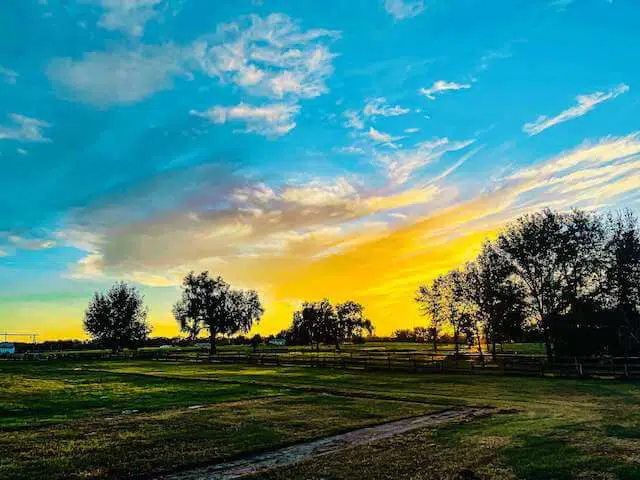
How much do you need to live comfortably in Florida?
Depending on your needs, your family’s needs, and the goals you have for having land in Florida depend on how much you need to live comfortably.
Some people can live comfortably with one acre or less, while others need at least 5 acres to live comfortably.
It’s all personal preference, for example, if you want to grow a year’s worth of food like I want to, you will need more land than someone else who doesn’t even garden.
Overall, believe you can live comfortably in any size of land as long as it suits your needs.
Buying land in Florida was a learning process and I hope sharing these tips will you in your land search.
I’m not a real estate agent or claim to be an expert, but I speak from having my own experiences that can bring value to someone else.
My perspective is different than most because we were a military family trying to use government resources that ended up failing us in the end.
I’m lucky that I didn’t give up on finding land in Florida, so if I could do it you can too…don’t give up!

RECAP: 15 things I learned Buying Land in Florida
- Getting the right lender that will support your goals is key.
- The Property Zone of your land matters…a lot!
- Always check for wetland or if the land is in a flood zone first.
- Save money for various inspections & other fees during escrow
- If you’re planning to generate income from land, it might be hard to finance.
- Be prepared for land expenses after you close
- Look at what is surrounding the land and your potential neighbors.
- Research land history: back taxes, property ownership, land specs, etc
- Know if you have a POA or an HOA
- Find out the Utilities Situation of the land
- .Be mindful of the land needs to be cleared
- Land Slopes, Shapes, Size, and Entrances matter
- Research all the different types of loans beforehand
- Going manufacture home route, know the rules!
- Educate yourself on what are mineral rights
Check out more Informative posts!
A Guide to a Homesteading Life: Homestead Anywhere Ebook
The Truth behind Farm Fresh Eggs vs Store-Bought Eggs
Non Detergent Soap vs Detergent: What is the difference?
PIN FOR LATER

